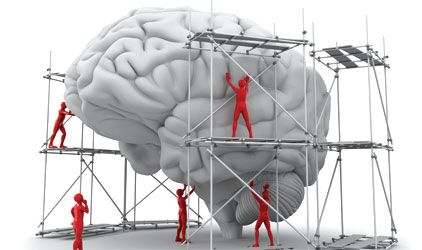Cognitive restructuring: Your ideal guide to reframing your thought patterns.
Your brain is not always right! In fact, you should not always believe what it tells you for that matter. Mhm, a bitter pill to swallow? I know, but that’s the fact. Even though the brain is such a powerful organ that alerts us of dangers and helps us get solutions, sometimes it can be misleading or rather lie to us.
Over time, the brain develops some faulty connections which lead to thoughts that are not necessarily true. When something happens, the brain quickly makes connections to alert you why the situation at hand has happened the way it has. This is where the brain tends to lose it since the connections it makes can be unhelpful, sometimes. What am I driving at? When these unhelpful connections happen, they trigger negative emotions making us experience feelings of anger, sadness, stress, and anxiety for the wrong reason.
Cognitive restructuring
Take an instance whereby your spouse is late to come home and they are not picking up the phone. Different people will react to this scenario in diverse ways depending on what their brain tells them. One person may think that their spouse is late because they are out there cheating. Another person might freak out and think that something terrible might have happened to their spouse hence the reason they are not responding to phone calls.
Both of these people could be wrong, yet, they might already be feeling angry, fearful or anxious. This happens when we are not able to take charge and capture the first automatic thoughts we have before they can proceed to mess up with our emotions hence affecting our mental health. At this juncture, allow me to introduce to you, cognitive restructuring, which is the solution to negative thinking patterns or what is popularly known as cognitive distortions.
In very simple terms, cognitive restructuring is reframing your thought patterns so that you are able to identify negative thoughts and change them as soon as possible. To break it down even further, it is ‘changing your thoughts.’ This in return helps to curb negative emotions and behaviors that might result from the said emotions.
Do I need cognitive restructuring?
We could all use some guidance, to be honest. Cognitive restructuring is an important element of therapy, because a healthy way of thinking is vital for good mental health. This means that identifying our negative thoughts and consciously changing them could very well help us better handle stress, anxiety and depression. As a therapist who not only handles marriage and family therapy but also mental wellness, cognitive restructuring is a term that pops up in nearly all my sessions.
You do need cognitive restructuring, to be able to look at the positive side of a situation. This way, you learn to view problems as challenges, meaning they can be addressed with the possibility of a positive outcome.
Let’s look at Bob’s story. A year ago, Bob set out to start his own business, one that he had been considering for a while. He worked hard at it, and channeled his energy and resources into what he considered the venture that would turn his life around for good. Unfortunately, Bob’s business did not flourish as he had expected, and he suffered great losses that led him to shut down the business. When it got to that point, Bob thought of himself as a failure. He was distraught! For many of us, that would be our initial thought if we were to go through such an experience. However, the process of changing our thoughts in such a case, would teach us to look at our failures as learning opportunities. This way, we are able to be objective as we review what went wrong, and what lessons we can pick and carry with us on our next attempt at pursuing our dreams. We look at ourselves not as victims of circumstances, but as courageous survivors who now have another chance armed with more knowledge and resilience!
To be better able to change our thoughts, we also need to dispute the thoughts using facts. Remember, our mind can lie to us! Whatever we think is not always necessarily the truth. We could also use alternative explanations that are not as distressful. We are then better placed to think rationally about the situation, without being overwhelmed by emotion.
Do you have a best friend? I would like to imagine that our best friends would be those who speak to us with empathy and honesty. How do you speak to yourself? Are you hard on yourself? When making an effort to reframe your thoughts, how about you try to speak to yourself as a best friend would?
Focus on what you CAN change. Have you heard of the Serenity Prayer? We may not always be in control, but we can choose to focus on what we can take control of – like our thoughts. We can gather the courage to change what we can, and be hopeful that the decision to do so helps us feel calmer and more confident.
I would like to challenge you to develop distress-tolerant thoughts. As living beings, we are bound to have times when life gets tough. Look back and think of all the times that you have weathered a storm – the many times that you have gone through really tough times, and survived. Let such times serve as an inspiration for you to believe that whatever you go through, you can make it through.
May your mind be stronger, and your thoughts better. Cognitive restructuring is an exercise that takes time, but it is one that has the potential to change your life in a very positive way. At the end of the day, we all desire to have a clearer mind and a better approach to every day challenges. If this is a process that you really feel you need, don’t hesitate to reach out to me.




